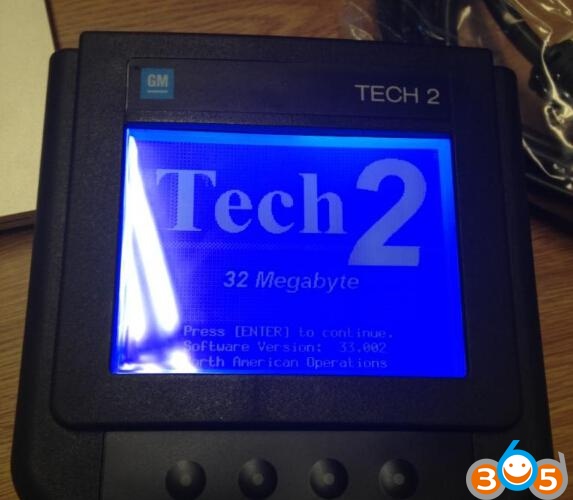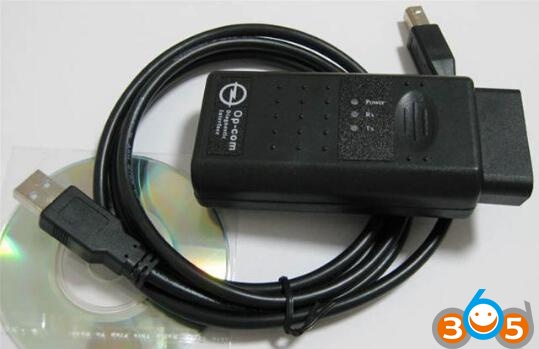Here are tips and guides of Opel steering angle sensor (SAS) calibration, incl SAS GM scan tools and FAQs…
What is steering angle sensor:
The steering angle sensor (SAS) is a critical part of the ESC system that measures the steering wheel position angle and rate of turn. A scan tool can be used to obtain this data in degrees. The SAS is located in a sensor cluster in the steering column.
Opel Tech 2 and Op-com, which is better for SAS reset:
With Tech2 you don’t need a PIN code.
Saab doesn’t have PIN code like Opel.
Saab doesn’t have PIN code like Opel.
How to reset Opel steering angle sensor:
Tech 2 steering angle sensor calibration:
Here is the procedure with Tech2:
Calibrating the steering wheel angle sensor
Note
The wheel alignment must be correct before calibration is carried out.
1. Put the wheels straight ahead.
2. Connect the diagnostic tool.
3. Select Steering Angle Sensor Calibration. Follow the instructions displayed.
4. Read and clear diagnostic trouble codes.
5. Test drive the vehicle.
Calibrating the steering wheel angle sensor
Note
The wheel alignment must be correct before calibration is carried out.
1. Put the wheels straight ahead.
2. Connect the diagnostic tool.
3. Select Steering Angle Sensor Calibration. Follow the instructions displayed.
4. Read and clear diagnostic trouble codes.
5. Test drive the vehicle.
Op-com steering angle sensor calibration:
- 1. Disconnect the battery and the steering angle sensor lose its basic setting
2. Remove airbag and steering wheel following the usual precautions
3. Move the center rotor of the CIM to align the 2 triangles
4. Connect the op-com interface with computer via USB port than install the software
5. Plug the op-com unit into the vehicle USB port after succeeded installing software
6. Op-com will turn out the ESP light but not very first and second time
7. Turn on the vehicle ignition switch and start the vehicle.
8. Drive in a short distance straight line on a level surface at the speed not higher than 20 km/h.
9. When the steering wheel is straight, stop the vehicle with the wheels pointed straight. Make sure the vehicle is not move again.
10. Come to the op-com main function menu, select “Op-com Diagnostic”>> Vehicle year “2006”>>Vehicle model “Astra-H”>>Body>>CIM (Steering Column Module. >> Measuring block 3>>Steering Angle Sensor offset – set to 0.00 by slightly moving steering wheel
11. Back to the CIM screen, select “Programming”. Enter the security code if the system asks for it. Then click “Yes” when the system accepts the security code.
12. Go back to the programming screen, select “Steering angle calibration”, if the system still showed steering angle calibrated, choose “No, choose Activate and waited”. Otherwise, select “Yes” when the system displays steering angle calibrated.
13. The ESP light then came on with ignition as normal and went out after a few seconds
FAQs: steering angle sensors (SAS)
How long have steering angle sensors (SAS) been in use?These sensors have been in use on certain vehicles since the early 1990s, but became commonplace by 1998.
Why does the SAS need to be calibrated or reset after a wheel alignment?Because it is required by the OEM.
When did OEMs begin requiring SAS reset with alignment?Some as early as 2003, others as recently as 2008, though some 2008 models were specified as early as 2002. Hunter’s WinAlign software has always provided vehicle specific screens that advised technicians that special equipment and software would be required to complete the alignment.
Why am I just now hearing that SAS need service?Because many newer on-board systems such as electronic stability control and electric power steering rely on accurate input of the driver’s intentions. This input is provided by the SAS)
Why do some OEMs require SAS reset in conjunction with alignment on only particular models or model year of vehicles?Each OEM has their own specific selection criteria on which vehicles are affected.
Why don’t all OEMs require reset after alignment?Each OEM has its own service requirement criteria. Most OEMs have only added the requirement in the last few years. Some as recently as 2008.
Does the SAS need to calibrated or reset if thrust angle is not changed during the wheel alignment?Yes. Thrust angle is only one of many conditions causing the SAS to report a value other than zero when the front wheels are steered straight-ahead based on the thrust angle.
Why do some SAS reset procedures require the vehicle to be driven a given distance to complete the procedure?Each vehicle manufacturer develops the SAS reset procedure based on the technology and design of the system. In some cases, a test drive is needed for the vehicle’s ECM to verify proper operation. CodeLink will indicate which specific vehicles require a test drive.
Do SAS automatically calibrate themselves after the vehicle has been driven a given distance?On some vehicles, SAS is automatically calibrated; on other vehicles, it is not. In either case, OEM mandates determine whether SAS reset is required after wheel alignment. Always follow the OEM’s recommended service procedures.
What may happen if the SAS requires calibration or reset and the process is ignored?A variety of symptoms may result from a SAS reporting inaccurate information. Examples of such symptoms may be a shutdown of the electronic stability control system, untimely application of individual brakes, steering wheel vibration or a vehicle that drifts of pulls in one direction.



No comments:
Post a Comment
Note: Only a member of this blog may post a comment.